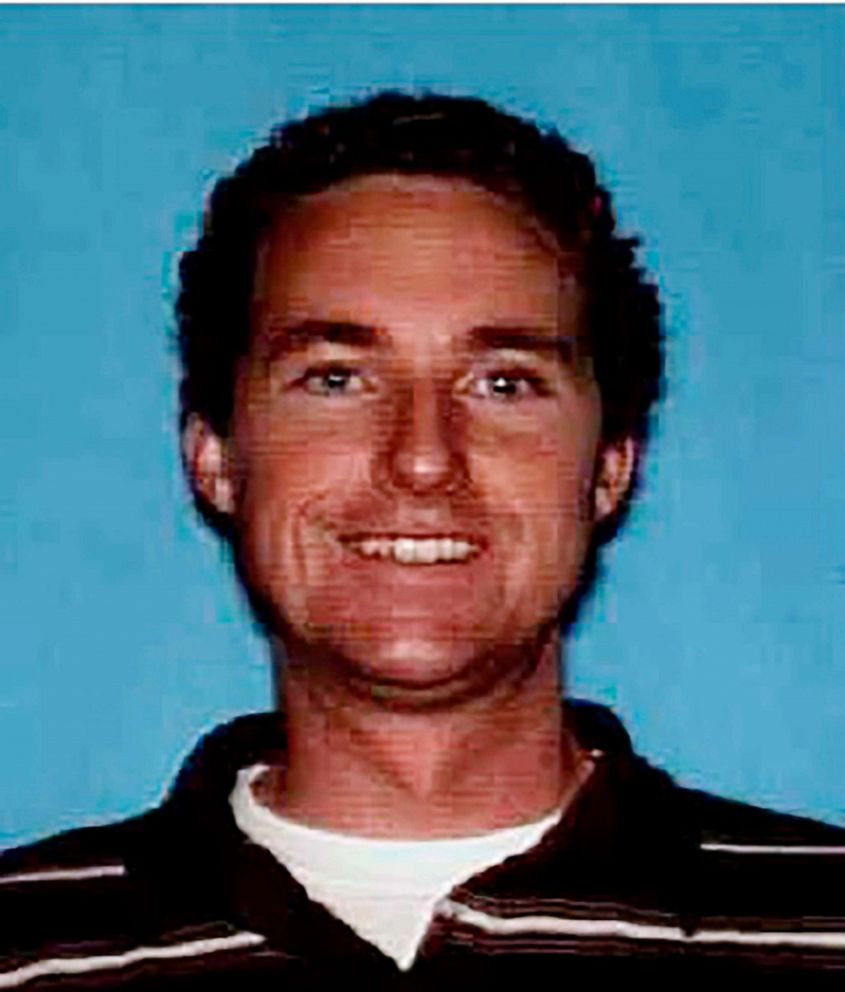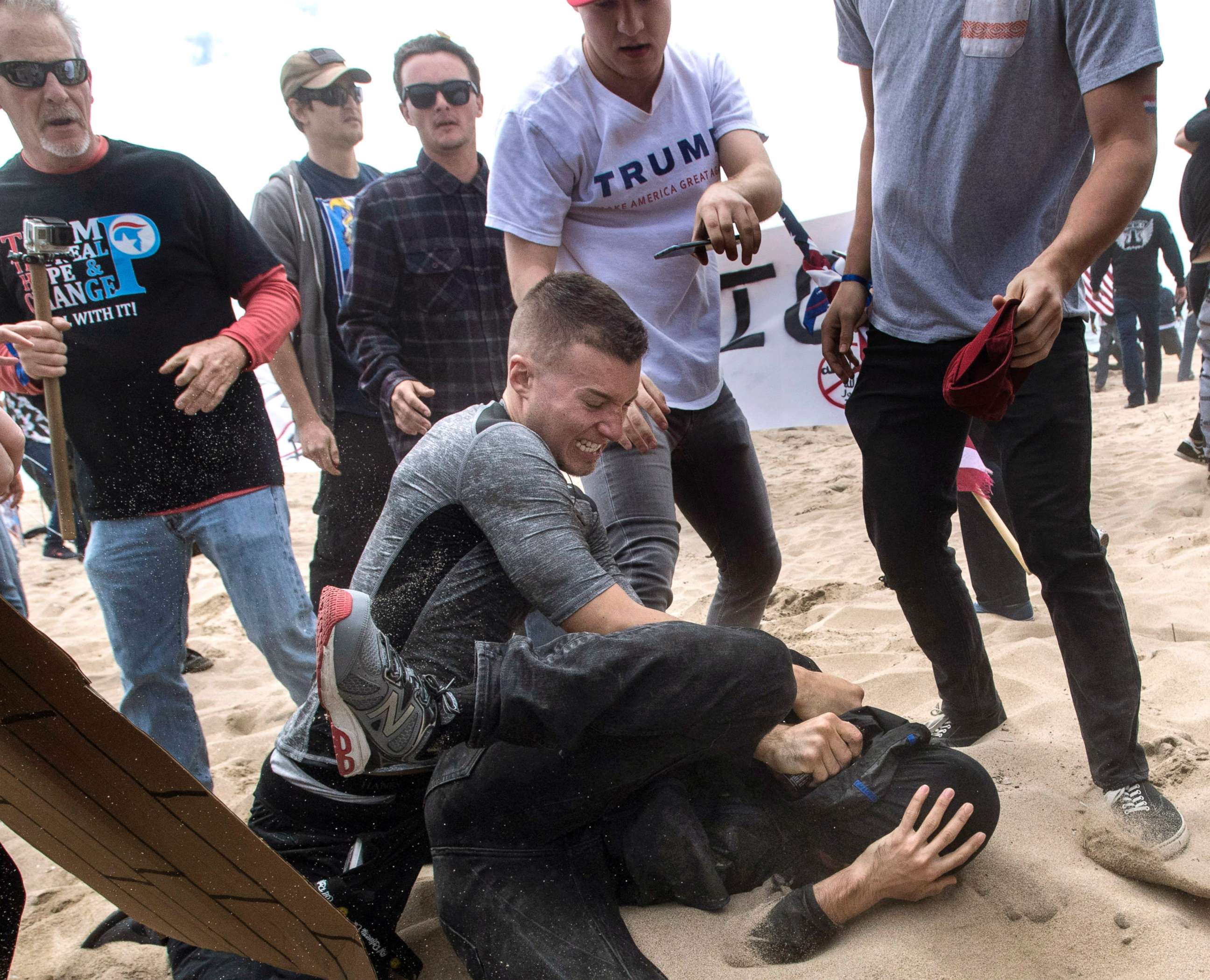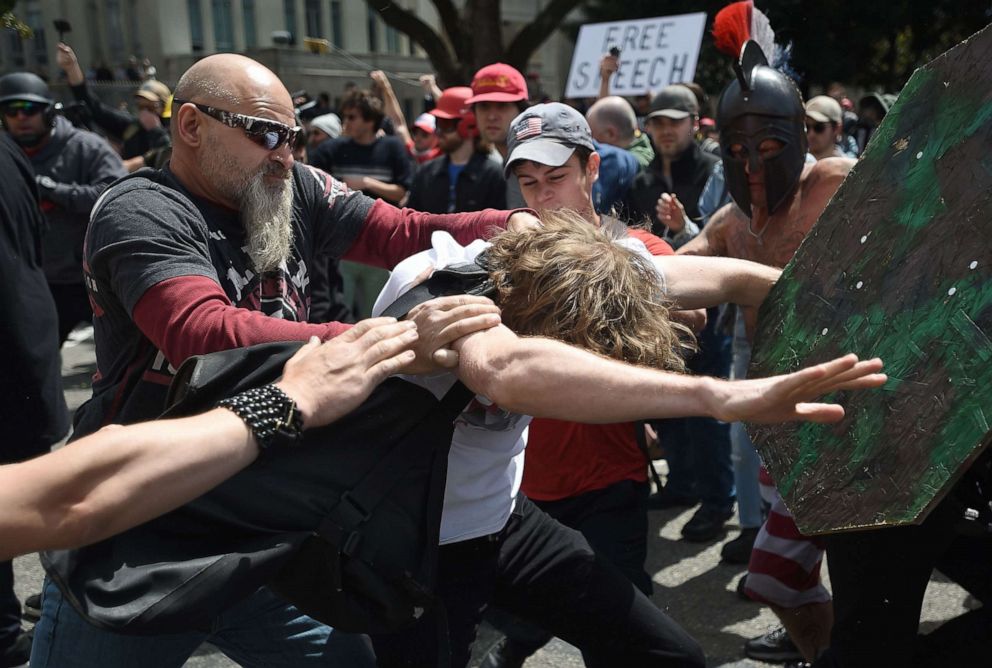Calif. district judge tosses US case against members of white nationalist group
The case illustrated a major legal hurdle federal prosecutors face.
A U.S. district judge this week tossed out a case by federal prosecutors against members of a white nationalist group accused of conspiring to incite riots at political rallies, just a day before House Democrats pressed top FBI officials over the government's response to the rising threat of white supremacist extremism.
The case underscored the challenges the government faces in successfully prosecuting white nationalists accused of advocating or planning acts of violence with the absence of a federal law that explicitly addresses domestic terrorism.
U.S. District Judge Cormac J. Carney on Monday dismissed a series of charges under the Anti-Riot Act brought last October against Robert Rundo, Robert Boman and Aaron Eason, all members of "Rise Above Movement," an organization that a U.S. Attorney's office in California previously called a "white supremacy extremist group." Carney's ruling argued against the Anti-Riot Act as "unconstitutionally overbroad in violation of the First Amendment," and said the government's charges largely dealt with behavior protected as free speech.

Tyler Laube, a separate member of the group named in the government's initial indictment, previously pleaded guilty in November to a single count of conspiracy. But following Carney's ruling, Laube requested on Tuesday to withdraw his guilty plea and similarly have the charges against him dismissed.
In the government's initial indictment, Rundo, Boman, Eason and Laube were accused of traveling to political rallies – including the 'Unite the Right' rally in Charlottesville, Va. August of 2017 – and working with other Rise Above Movement members to organize ways to violently attack counterprotesters and start riots. In Charlottesville that violence escalated to a point where self-avowed neo-Nazi James Alex Fields rammed his car into a crowd of counterprotesters, killing 32-year-old Heather Heyer. Fields pleaded guilty in March to 29 counts of violating federal hate crime law.
The charges against Rundo, Boman and Eason were not related to Heyer’s death.

Rundo, one of the group's founding members, and Boman specifically were featured in videos posted online by Rise Above Movement where they offered combat training tips, interspersed with clips of masked members fighting with protesters at rallies.
The group was also accused of attacking counterprotesters during a pro-Trump rally in Hunting Beach, California in March of 2017 followed by the violent rally in Berkeley just weeks later, with the indictment pointing specifically to videos uploaded online showing the four involved in the middle of several altercations.

But in his dismissal of the charges Monday, Judge Carney challenged the government's approach to the case and ruled that many of the charges included "protected expressive activity."
"Make no mistake that it is reprehensible to throw punches in the name of teaching Antifa some lesson," Carney wrote. "Nor does the Court condone RAM's hateful and toxic ideology. But the government has sufficient means at its disposal to prevent and punish such behavior without sacrificing the First Amendment."
A spokesperson for the U.S. Attorney for the Central District of California told ABC News that prosecutors are disappointed in the ruling and "are reviewing possible grounds for appeal."
The defeat for the government came just one day before a top FBI official sought to explain to lawmakers the difficulty prosecutors face in bringing charges against domestic terror suspects in contrast to cases involving international terrorism.
"The United States Congress doesn't have a statute for us for domestic terrorism like we do in foreign terrorist organizations like ISIS, Al Qaeda, Al Shabaab," Michael McGarrity, the FBI Assistant Director for Counterterrorism said Tuesday in testimony to the House Oversight subcommittee on civil rights and civil liberties.
McGarrity noted that prosecutors often are forced to rely on other federal crimes to charge suspects with or rely on state or local laws such as in the recent case of Coast Guard lieutenant Christopher Hasson, who despite being accused of plotting mass murder "on a scale rarely seen in this country," according to court documents, is currently facing only gun and drug charges by federal prosecutors in Maryland.
"I will say as a former prosecutor and as a former investigator, I want every tool in the toolbox," McGarrity said while acknowledging the First Amendment concerns that would come with any type of terror designation for groups operating in the U.S.
Former DHS counterterrorism coordinator and ABC News contributor John Cohen agreed that the lack of clarity in the law can complicate investigative and prosecutorial strategy to a point where it forces investigators to distinguish between violent extremist activity and protected free speech.
"It's not the job of law enforcement to police thought and speech," Cohen said. "It is the responsibility of law enforcement to prevent acts of violence by those motivated by extremist ideologies."
That tension between protecting the First Amendment and preventing violence was evident in Judge Carney's ruling, where he admonished the government's use of the Anti-Riot Act, a Vietnam-era law long targeted by free speech advocates.
"It is easy to champion free speech when it advocates a viewpoint with which we agree," Carney wrote. "It is much harder when the speech promotes ideas that we find abhorrent."




